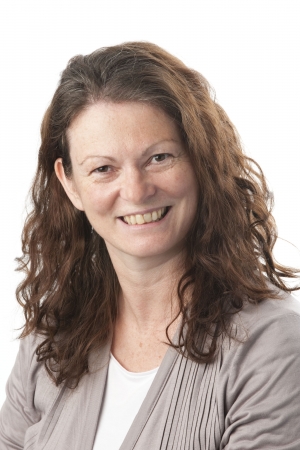What determines health?
Research news
During October, the World Health Organisation (WHO) held the World Conference on Social Determinants of Health in Rio de Janeiro – a conference focused upon building worldwide support for acting upon the social determinants of global health.
Following that significant event, it is timely to revisit the Barwon Epidemiology and Biostatistics Unit (BEBU) of Barwon Health, a partnership between Barwon Health and Deakin University’s School of Medicine, to examine the work being undertaken by the Geelong Osteoporosis Study (GOS) in the area of social determinants of health of the residents of Geelong and surrounding areas.
Geelong-based Research Fellow Dr Sharon Brennan has been examining social determinants of health within the GOS since she joined the unit five years ago, working under the supervision of Deakin University’s Associate Professor Julie Pasco, Principal Research Fellow and Director of the BEBU.
“As identified by the WHO, it is important to examine where we are born, grow, age, live, work, and play, as these factors have a profound impact upon population health outcomes," Dr Brennan said.
“Social status, or socioeconomic status, is most often measured by income, education, or occupation, but there are many more social determinants which influence health outcomes, even in a high-income country such as Australia.
“Income, education and occupation contribute to health by equipping people with the ability to access services, participate in health promoting activities, and increase knowledge and skills for decision making. Importantly, because education influences the type of occupation the individual holds, and is closely linked with income.
"However, it is essential to understand that socially disadvantaged individuals may face many barriers to improving or protecting their health, which may not only be related to cost or access issues.
“Lifestyle behaviour choices are essentially the actions taken by individuals that may be able to prevent or control diseases. But social support networks and social environments, incorporating families, friends and the community, may also be key predictors of lifestyle choices and behaviors.
"This is because although social supports may help us to make positive choices, they also influence our ‘norms’, or usual lifestyle behaviors, which unfortunately include the less healthy ones such as dietary and physical activity patterns, and also they influence our attitudes toward health care service utilisation.
“Minority groups may face additional health risks due to their social position and environments, which could contribute to marginalisation and a lack of access to culturally appropriate health care and services, amongst other issues.
“Factors associated with the physical and built environments may also present key problems to protecting or improving your health. Physical environments include the level of air, water , soil, or food-borne exposures, and the built environment incorporates infrastructure such as service provision, transport, recreation facilities, and the availability and safety of public spaces.
“Finally, early childhood exposures to all these social determinants, even whilst still in the womb, are considered strong determinants of health. Furthermore, exposures from pre-birth to our current life-stage may contribute to the accumulation of disadvantage upon our health.
“It is crucial that we continue to investigate and act upon the social determinants of health, because the impact that these factors have upon disease may at times be quite significant, and often out of the control of the individual.
“The research undertaken within GOS, suggest that greater collaborative action may be required between many groups, including health care providers, communities, advocacy groups, researchers, health promoters, policy makers and governments, to address the differences in health status and risk factors for disease observed between different social groups in the Geelong and surrounding regions.”
Dr Brennan holds a prestigious and highly competitive Research Fellowship from the National Health and Medical Research Council of Australia. Her research has won her international recognition and she has published widely in leading international journals.
The primary focus of the GOS is to describe the burden of osteoporosis in the general population and to identify risk factors for fracture.
The study was initiated in 1993; since then 1700 women and 1500 men, randomly-selected from the electoral rolls, return to the study centre at Barwon Health every few years to have their health monitored.
The GOS examines many disorders including cardiovascular disease, diabetes, obesity, cancer, coeliac disease, osteoarthritis and psychiatric illness, and have many international research collaborations. The unit is vibrant and internationally renowned, comprising fulltime researchers, research assistants, and also Honours and PhD students who undertake a variety of research projects.
Share this story
 Dr Sharon Brennan
Dr Sharon Brennan
